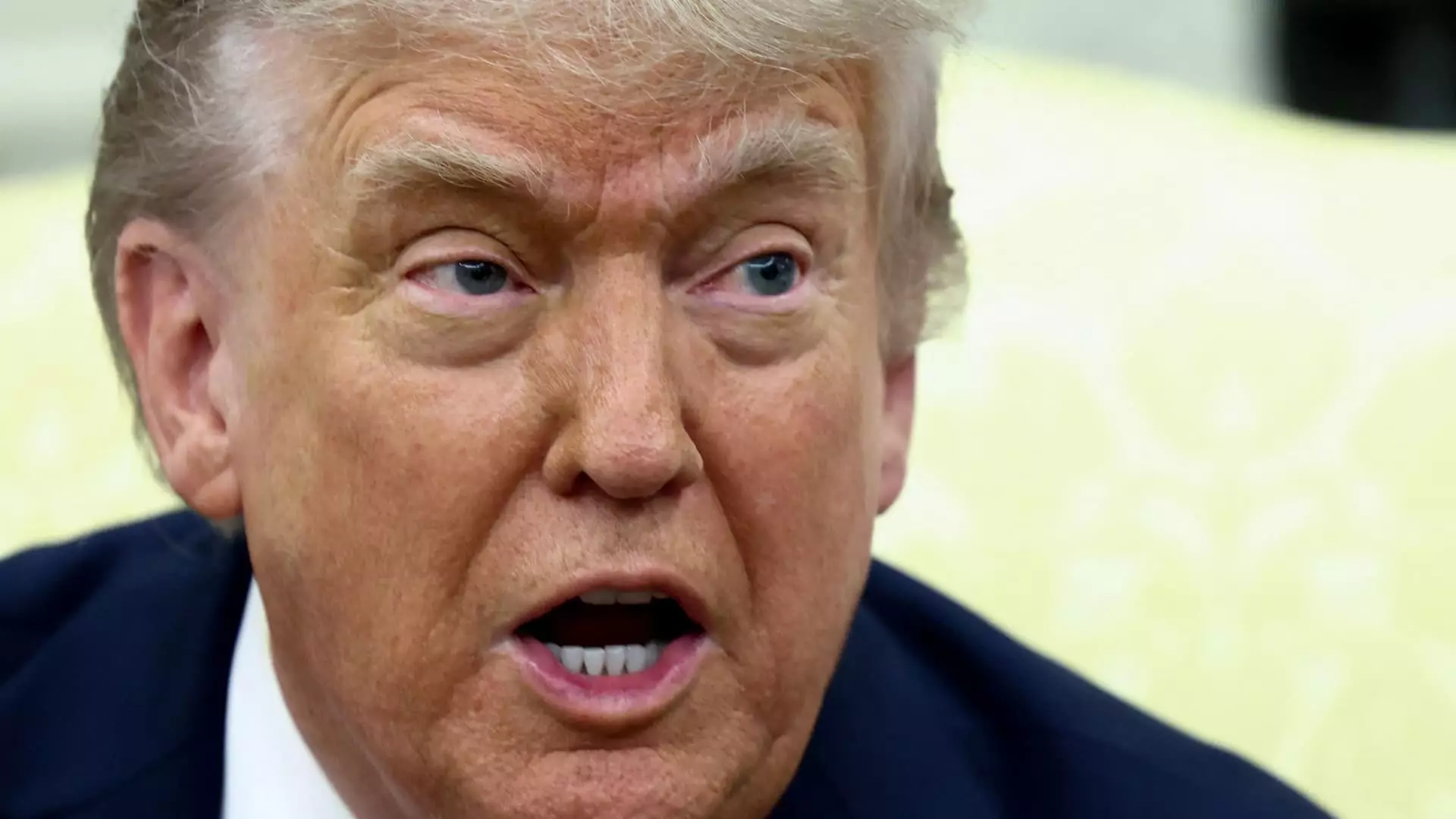In an unexpected twist of political drama, President Donald Trump and tech titan Elon Musk have found themselves at odds over a tax bill that promises to rewrite the economic landscape. The president, known for his bombastic style, publicly lambasted Musk for his criticism of the proposed legislation, which eliminates subsidies for electric vehicles (EVs). Trump’s frustration is palpable; he believes Musk, whom he once considered an ally, is acting out of self-interest rather than a broader concern for fiscal policy. This ongoing feud is more than mere tit-for-tat; it encapsulates the conflicting ideologies that define the intersection of technology and politics today.
Critically assessing Trump’s position, his disappointment in Musk reveals a fundamental misunderstanding of the role that private enterprise plays in politics. Musk’s complaints are rooted in the very real implications that cutting EV credits has not only for his business but for the future of sustainable energy in America. While Trump perceives Musk’s criticism as an affront to his leadership, it serves as a stark reminder that innovation and fiscal responsibility are not mutually exclusive.
The Political Climate of Ambition
Musk’s swift retort on social media, where he dismissed Trump’s remarks with a terse “Whatever,” encapsulates the chasm between the two men. As Musk advocates for substantial revisions to the tax bill—labeling it a “disgusting abomination”—it is clear that the implications of this legislation extend well beyond the boardroom. By prioritizing tax cuts for fossil fuels while simultaneously slashing incentives for renewable energy, the bill exacerbates the existing tensions surrounding climate change and sustainable practices.
In dissecting this rhetoric, it’s evident that Musk’s critique stems from a profound moral obligation toward innovation and environmental responsibility. His call to retain EV incentives while eliminating wasteful spending resonates with those who view green initiatives as not merely a trend but an essential pivot for our future. Yet, Trump’s dismissal of this perspective casts a spotlight on a troubling trend: the adversarial relationship between progressive thinkers in technology and a government that often lags in its understanding of modern challenges.
The Ill-Fated NASA Nomination
Adding fuel to the fire is Trump’s withdrawal of Musk’s nominee for NASA, Jared Isaacman, which compounds the rift. The president’s insistence that Isaacman is too aligned with Democratic values illustrates a narrow approach to governance that favors loyalty over capability. In a field dominated by complex science and technological innovation, the dismissal of a qualified candidate solely based on political affiliations undermines the very essence of progress.
Musk’s involvement in the space sector, particularly through SpaceX, demonstrates his commitment to pushing the boundaries of technology, yet Trump’s perspective remains homocentric, focused more on power dynamics than on fostering collaboration for the greater good. Musk’s response to Trump’s move, expressing dissatisfaction with the way major decisions are made, germinates from the fragility of trust that exists within this political cabal.
The Echoes of Economic Inequity
The driving force behind Musk’s frustration is clear: the proposed legislation not only reflects a critical economic policy shift but also a broader commentary on the balancing act between public policy and private industry. By disregarding the contributions of forward-thinking companies like Tesla, which are pivotal in the fight against climate change, Trump risks alienating an entire sector of innovative entrepreneurs who advocate for sustainable practices.
Trump’s message—a coalition of short-term economic gains over long-term environmental sustainability—is a dangerous one. In a political landscape where environmental catastrophes loom larger by the day, this veneer of progress is inherently hollow without genuine investment in renewable technologies. Elon Musk’s righteous indignation at the wastefulness in the bill is a call to arms for all those who see the future of America not as a series of tax breaks but as a commitment to innovation and sustainability.
Ultimately, the rift between Trump and Musk reflects not merely a personal spat but a broader ideological clash. As the world grapples with immense challenges, the dance of discontent between politics and innovation could define our path forward, revealing not just deep-seated divisions, but also the profound responsibility that rests upon the shoulders of our leaders—as well as private citizens—to carve a sustainable future.

